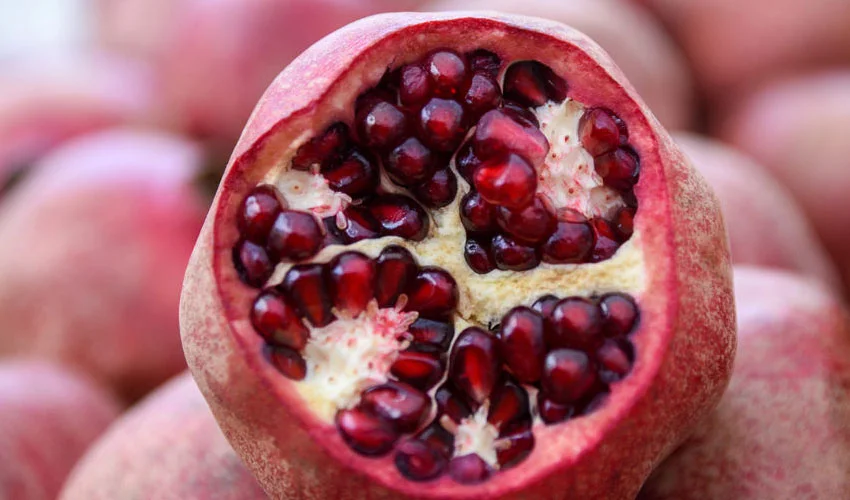Health and Nutrition
While peeling a pomegranate might seem tedious, the reward of its ruby-red, juicy seeds is worth the effort. Beyond its refreshing taste, this ancient fruit is a nutritional powerhouse with remarkable benefits for cardiovascular, cognitive, and overall health.
A Shield Against Cellular Damage
Pomegranates are heavily loaded with polyphenols, which are potent antioxidants that shield body cells from damage caused by free radicals. The flavonoids within these compounds are known to not only lower the risk of chronic conditions like high blood pressure and cancer but also enhance overall well-being.
Gut Health and Immune Support
The fruit is an excellent source of fiber. Just half a cup of pomegranate seeds provides approximately 5 grams of fiber, covering nearly 18% of the daily recommended intake. This high fiber content supports a healthy digestive system, prevents constipation, and helps regulate blood sugar levels—promoting satiety and keeping hunger at bay.
Furthermore, half a cup of seeds contains about 9 mg of Vitamin C, a vital nutrient that is critical for boosting immunity and strengthening the body’s defenses against seasonal illnesses. Vitamin C also assists in protein metabolism and supports overall cellular health.
Cardiovascular and Cognitive Protection
- Heart and Blood Vessels: Pomegranate juice significantly increases the production of nitric oxide, a compound that relaxes blood vessels and enhances blood circulation. Research indicates that regular consumption can help lower blood pressure and reduce the risk of heart diseases, making it an ideal choice for cardiovascular health.
- Brain Function: The beneficial compounds found in pomegranates protect brain cells from oxidative damage and inflammation. Studies suggest these nutrients may reduce the risk of Alzheimer’s disease and other neurodegenerative disorders, while also supporting better memory and mental clarity.
Anti-Inflammatory and Disease Management
Pomegranate juice is highly effective at lowering inflammatory markers in the body. Since chronic inflammation (edema) is a primary driver of conditions like heart disease and diabetes, incorporating pomegranate into your diet can provide crucial protection against these ailments.
Cancer Protection: Thanks to its powerful antioxidant properties, pomegranate may play a role in reducing the risk of several cancers, including breast, bladder, lung, and colon cancers. However, researchers emphasize that further human studies are necessary to confirm this protective link.
Kidney and Diabetes Health: Studies indicate that pomegranate’s antioxidants may help prevent the formation of kidney stones. For individuals with Type 2 diabetes, pomegranate juice can reduce insulin resistance and help stabilise blood sugar levels—offering a natural path toward condition management.
Additionally, a single cup of pomegranate juice delivers around 533 mg of Potassium, an essential mineral that maintains heart rhythm stability, supports crucial nerve function, and strengthens muscles.



